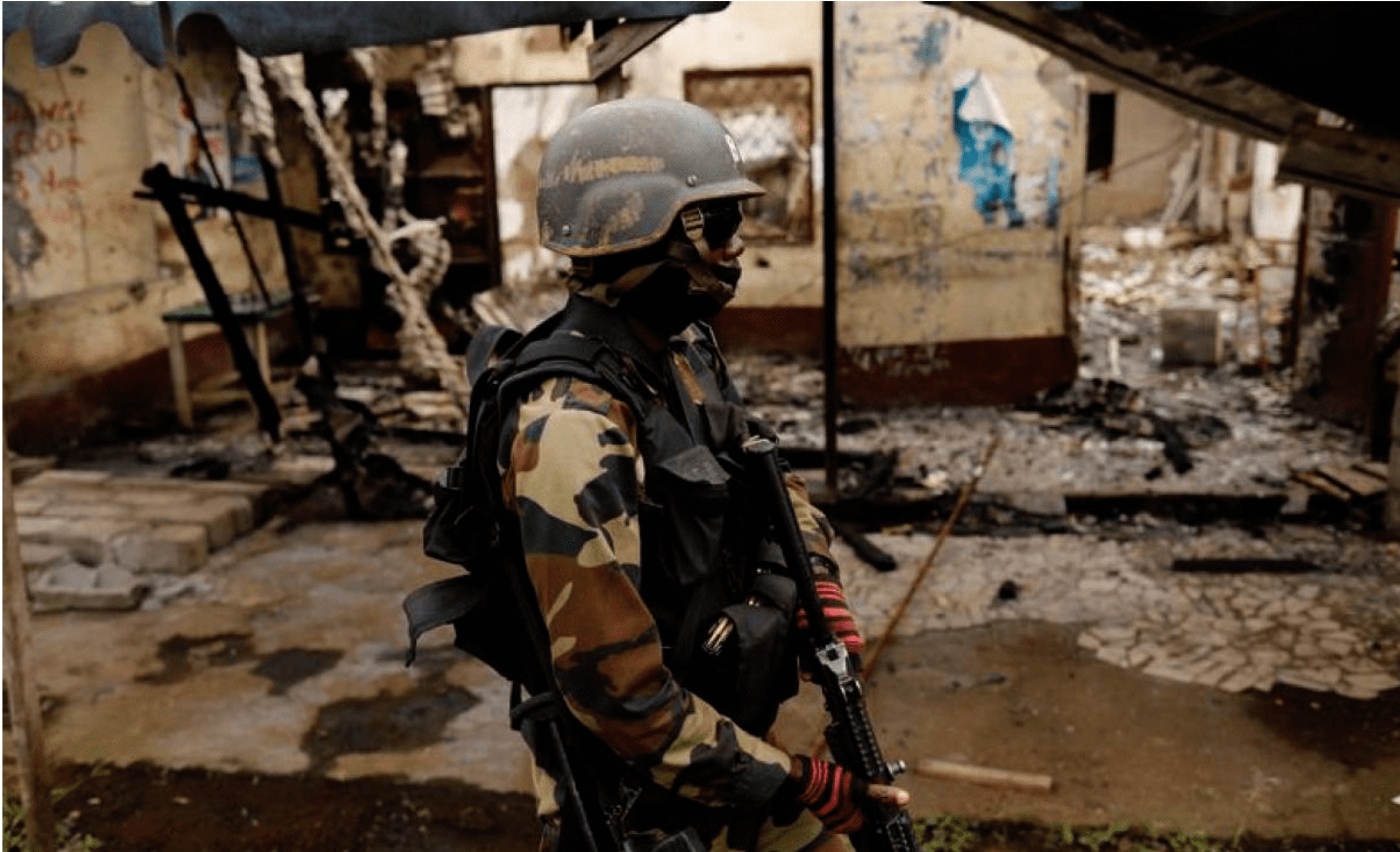It is now almost three years since the Anglophone region of Cameroon started its secessionist campaign. The resulting unrest has torn Cameroon into two ethnic factions—a Francophone majority to the north and an Anglophone minority to the south—with over one million people already displaced. The United Nations (UN) recently reported that if the crisis continues, the result will be more devastating than what we are seeing. This caution by the UN is a timely reminder that Cameroon is sitting on a time bomb, which if explodes more than it has, will be of proportionate negative consequence on the country and the West and East Africa regions.
The battle lines of the conflict in this Central African country are drawn by language. Around 80 percent of the country speaks French; the rest speaks English. For decades, Francophones and Anglophones lived in relative harmony. – Washington Post
Why the Conflict
The conflict in the southwest region was ignited in 2017 following protests of tribal discrimination by teachers and lawyers from the Anglophone minority. Armed militias in the region eventually seized this opportunity to escalate their request for independence from Cameroon.
[perfectpullquote align=”right” bordertop=”false” cite=”” link=”” color=”” class=”” size=””]The ongoing conflict has already made Cameroon one of the countries with the highest number of internally displaced persons in the world.[/perfectpullquote]
Interestingly, the unrecognized region of Ambazonia—the seceding republic—was for a long time, part of colonial Nigeria. It also extends to some parts of Cameroon. But the present call for an independent Ambazonia has been fiercely countered with a violent crackdown by the Cameroonian government, and the long reign of President Paul Biya is one reason the crisis has escalated in the first place.
President Biya’s reign of 37 years has come with many cases of abuse of power and restrictions on individual freedoms. In 2014, Abubakar Siddiki, the leader of Cameroon’s Patriotic Salvation Movement—a small opposition party in the country’s northernmost region, was arrested for his hostilities against the government, and in 2017, he was served a 25-year jail term. In 2018, opposition leader, Maurice Kamto, was also arrested in Douala after he led a peaceful protest contesting the validity of the last election that saw Biya re-elected amidst concerns of irregularities. In the same 2018, the internet was shut down by the government for 230 days in a disciplinary move on the public for dissent. These are only a few tyrannical attitudes of the Biya government that have pissed off minority groups.
The Cost of Conflict
The instability in Cameroon has negatively impacted millions of families with more than 600,000 children currently out of school. The health sector is also crippled as only about 40 percent of medical facilities in the country are currently running. But Cameroon could be in for more troubles in the coming years since there is a possibility that the prolonged conflict will further make these children vulnerable to recruitment by armed militias. The conflict has also made Cameroon one of the countries with the highest number of internally displaced persons in the world. This will, unfortunately, only increase if the conflict persists. But there are equally more worrisome outcomes like the vulnerability of displaced women to sexual violence and the possible outbreak of deadly diseases in refugee camps. The financial consequence of the ignorance by Yaounde is now beyond comprehension.
The United Nations has reported that over $300 million will be required to reach affected communities in 2019 alone—not to rebuild the country, but to simply provide food and shelter for the affected communities. However, only $38 million dollars is raised so far while over 2.3 million people urgently need help.
Another bad consequence for Cameroon was the disgraceful stripping of its rights to host the 2019 African Cup of Nations football tournament. Who in this world would bring such an important sporting and cultural event to a country that has no respect for minority rights? The tournament could have helped the failing Cameroonian economy gain some momentum, but that again, will not happen as the tournament will now be hosted by Egypt.
How to Save Cameroon
No one wants a repeat of the ugly humanitarian disasters in Somalia or South Sudan and Africa cannot simply allow another country to slide into unmanageable civil chaos. For Cameroon to help itself, though, a constitutional amendment is necessary. The constitution must provide for equal participation in government and equal benefits for all ethnic groups. More so, Paul Biya’s reign as the president is long overdue and must come to an end now.
The constitution should be amended to not allow more than two terms for any future President. Governments in Western and Central Africa must also work with Cameroon to find a peaceful resolution to the conflict in other to save the regions from blowing up. Both regions are already witnessing humanitarian crises as a result of the Boko Haram insurgency and the civil war in the Central African Republic; They cannot allow another one in Cameroon.
The Cameroonian government must equally treat this conflict as not only repressing secessionist agitations but as an opportunity to create stronger national unity by finding solutions to the concerns of its own citizens. Also for the secessionists, they must realize that even if Ambazonia breaks away today, it will not guarantee their security at the get go and neither will it automatically create a wealthy republic.
Oluwasegun Ajetunmobi is a Writing Fellow at African Liberty and a Graduate student of Diaspora and Transnational Studies at the University of Ibadan, Nigeria. He is an Agora Fellow at Young Voices and an Alumnus of the Young African Leaders Initiative, Regional Leadership Centre (Accra). He can be reached on Twitter via @segzyaj.
Photo Credit: Thomson Reuters

